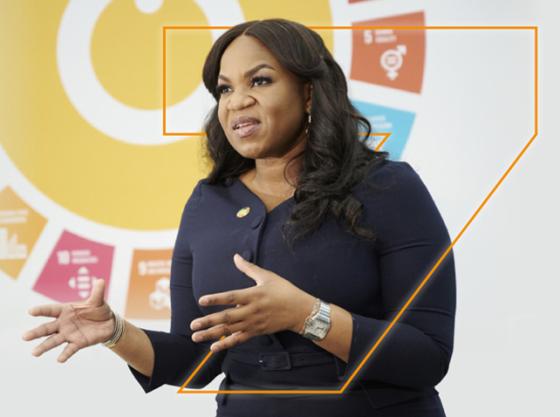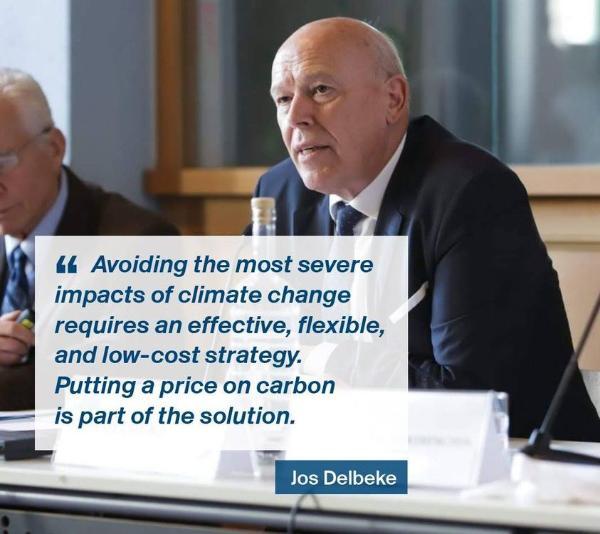28 - 30 April 2023. Nairobi, Kenya. The 2023 Ibrahim governance Weekend (IGW) hosted a series of events that brought together global representation from political leadership, civil society and the private sector for open and thought-provoking debate and discussion.
See the recordings of the different sessions here.
- The 2023 IGW opened with a leadership ceremony, awarding in-person to former president of Niger, Mahamadou Issoufou, his 2020 Ibrahim Prize medal. This offered the opportunity to hear from some of the most prominent voices in global leadership and governance on the challenges and prospects facing African leadership.
- The first session – Africa in the World: multiple assets – examined Africa’s place in the world, highlighting the continent’s assets and potential, without downsizing the current barriers to achieving this potential.
- The second and third sessions – The World in Africa: a growing competition – state and non-state actors – invited conversation from a range of actors present in Africa to expose their interest for the continent.
- The fourth and final session – Africa in the multilateral architecture: where is its voice? –
explored Africa’s current and future position in the multilateral system, the need to amend both the representativity and efficiency of the current system, and the rise of alternative ‘competitors’ at a multilateral level. - In a public one-to-one conversation, Abdalla Hamdok and Mo Ibrahim discussed Sudan’s historic roots of instability, and the conditions and prospects of solving the current crisis.
- Mo held another one-to one conversation with H.E. William Ruto, President of Kenya, around the ongoing climate change debate – including the value of creating an efficient carbon market – as well as discussing reforms to the multilateral architecture and processes, such as removing the currently punitive assessment of African risk. They concluded by discussing Kenya’s current political and economic situation and prospects.
One of Ruto’s key points was the lack of investment for climate change mitigation and adaptation in Africa. Despite the fact that African nations are among the most vulnerable to its effects, they receive a disproportionately small amount of global climate finance compared to other regions. Ruto called for the situation to be rectified, emphasizing that wealthy nations need to support African countries in their climate adaptation and mitigation initiatives.
Ruto also drew attention to the lack of African voices at global discussions on climate change. He emphasized that African countries must be represented at major climate events and platforms. Such participation can help to raise awareness of the urgency of the situation in Africa and ensure that African perspectives are fully considered in global climate change discussions.
Throughout the course of the three days, there were also a series of parallel events discussing key
African challenges. Ahead of the Africa Climate Summit, to be hosted by Kenya between 4-6 September 2023, a specific focus was given to the climate topic, with a meeting of the Climate Overshoot Commission, and the launch of the Carbon Market Working Group by the Africa Europe Foundation, which was co-founded in 2020 by the Mo Ibrahim Foundation.
African challenges. Ahead of the Africa Climate Summit, to be hosted by Kenya between 4-6 September 2023, a specific focus was given to the climate topic, with a meeting of the Climate Overshoot Commission, and the launch of the Carbon Market Working Group by the Africa Europe Foundation, which was co-founded in 2020 by the Mo Ibrahim Foundation.
30 April 2023. Nairobi. A cross-continental Working Group on Carbon Markets was launched by the Africa-Europe Foundation at the 2023 Ibrahim Governance Weekend.
The Working Group serves as a platform to strengthen the Africa-Europe partnership by doubling down on efforts to grow African carbon markets, merging the continent’s large carbon potential with Europe’s long-standing expertise and lessons learned in the field.
Building on the 6th African Union-European Summit of February 2022, it aims to catalyse cooperation by bringing together experts and leaders from diverse organisational backgrounds to strengthen a sector which can play a valuable supplementary role in the reduction of global emissions.
It is co-chaired by Damilola Ogunbiyi of the UN Secretary-General for Sustainable Energy for All and Jos Delbeke of the European Investment Bank.
The Group’s first kick-off meeting provided an overview of the state of carbon markets in Europe and Africa - taking stock of relevant continental perspectives, the latest innovative initiatives, and policy developments associated with Article 6 of the Paris Agreement. It offered an opportunity for members to identify priority issues and possible avenues for enhanced cross-continental cooperation in the sector.
Key conclusions included:
The Group’s first kick-off meeting provided an overview of the state of carbon markets in Europe and Africa - taking stock of relevant continental perspectives, the latest innovative initiatives, and policy developments associated with Article 6 of the Paris Agreement. It offered an opportunity for members to identify priority issues and possible avenues for enhanced cross-continental cooperation in the sector.
Key conclusions included:
- Carbon markets have the potential to be the next biggest export for the African continent, ensuring both environmental preservation and restoration while attracting substantive levels of fresh finance.
- Currently, Africa’s voluntary carbon market is growing at a rate of 36%, of which 65% is taking place in five countries, with Kenya dominating. In order to scale-up continent wide developers, capacity sharing and the creation of an efficient verification process for high integrity is key.
- To ensure better pricing and sustainability, end-to-end integrity of carbon markets is essential on both the demand and supply side, underpinned by robust governance frameworks.
- Solid measurement, reporting and verification systems, as well as communications are critical to increase trust and limit confusion on processes to attract private sector investment and advanced market commitments.





No comments:
Post a Comment